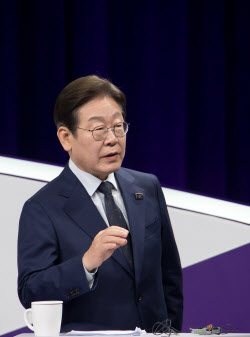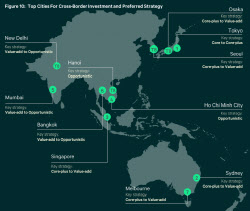- 비정규직 근로자의 반란
게으름뱅이 취급받던 일본 청년들 “인간답게 일하게 해 달라” 최근의 어느 일요일, 일본 전역에서 모인 젊은이 수천 명이 정치에 무관심하기로 유명한 도쿄 중심부에서 뜻밖의 요구를 하며 시위를 벌였다. 대부분 20대인 시위 참가자들은 세계의 부국으로 손꼽히는 일본의 근로빈곤층(일할 능력과 의지는 있지만 잦은 실직과 낮은 소득 때문에 가난에서 못 벗어나는 계층)인 자신들을 존중해 달라는 현수막을 들고 나왔다. 거기에는 ‘우리도 잘살고 싶다! 인간답게 일하게 해 달라!’는 문구가 적혀 있었다. 이날 시위에 참가한 고바야시 아야코(23)는 “가난이 정말 우리를 중심으로 확산돼 간다”고 말했다. 일본 경제가 되살아나고 정규직 일자리 수가 느는 건 사실이다. 하지만 이는 2003년까지 계속됐던 10년간의 구직난 동안 대학을 졸업한 수백만 일본인의 좌절을 더해 줄 뿐이다. 2001년부터 2006년까지 고이즈미 준이치로 전 총리 재임기간 동안, 정규직은 400만 개가 줄었고, 시간제 일자리와 임시직은 430만 개 늘었다. 현재 500만 명으로 추정되는 독신자가 기술이나 경험 부족으로 갈수록 취업에 어려움을 겪는다. 그리고 일부는 힘을 모으기 시작했다. “근로빈곤층의 불만이 마치 터지기 일보 직전의 풍선 같다”고 일요일 시위 주도 단체 중 하나인 도쿄 청년 비정규 근로자 연합의 이토 가즈미 위원장은 말했다. 일본 사회는 수년간 변변한 일자리를 갖지 못했던 ‘잃어버린 세대’를 아직 성숙하지 않은 게으른 어린이 취급했다. 하지만 지금은 그들이 영원히 임시직을 전전하며 미혼으로 남아 사회의 짐이 될까 걱정하기 시작했다. 그에 따라 새 행정부의 아베 신조 총리가 이 문제에 관심을 갖게 됐다. 아베는 최근 어려움을 겪는 근로자들에게 직업훈련을 비롯한 지원을 제공하는 ‘제2의 기회’ 프로그램을 발표했다. 정부는 또 시간제 근로자들의 임금 인상을 장려하거나 몇몇 경우에는 의무화하는 노동법을 통과시켰다. 지금까지 7억2500만 달러의 예산이 배정됐지만 이런 조치는, 큰 변화를 가져오기에는 너무 막연하고 제한적이라는 비판을 받는다. 그리고 새 노동법은 회사가 임시직의 임금 인상을 거부할 여지를 남겨놓았다. 일본 정부 발표에 따르면 안정된 직장 없이 임시직을 전전하는 35세 이하 근로자인 ‘프리터족’이 190만 명이나 된다. 지난 1년간은 이 수치가 약간 줄었지만 지난 15년 동안을 살펴보면 그 수가 거의 두 배 늘었다. 이들의 임금은 1년에 약 1만3300달러이며 많아야 1만6700달러다. 실업자, 장애인, 불완전 고용된 유자녀 독신여성에게 제공되는 복지수당과 거의 같은 수준이다. “그런 밑바닥 일자리가 늘어난다”고 모든 유형의 근로자를 지원하는 노동 단체인 ‘도쿄 연합’의 니시다 히데토시 사무국장은 말했다. 휴대전화 메시지를 이용한 임시직 모집이 늘면서 고용시장 분열이 심화하는 듯하다. 어떤 사람들은 임시직 이동이 너무 심해 이 카페에서 저 카페로 옮겨다니며 잠깐씩 생활하는 ‘인터넷 카페 난민’이 됐다. 시간제 근로자 증가는 일본에 국한된 문제가 아니다. 그러나 임금 불평등은 일본이 특히 심하다. 일본노동조합총연합회에 따르면 남성 시간제 근로자 소득은 정규직의 60%, 여성 시간제 근로자는 40% 수준이다. 유럽에서는 이 수치가 80~90%에 이른다. 경제협력개발기구(OECD)의 1999년 자료에 따르면 미국의 경우 60% 정도다. 예전에는 사람들이 그렇게 차이가 나도 반발하지 않았다. 많은 시간제 근로자들이 가정주부처럼 다른 사람에게 의지해 사는 사람들이었던 게 한 이유였다. 하지만 이제는 가정의 생계를 책임지는 시간제 근로자들이 갈수록 늘어난다. 최근 몇 달 동안, 일본 캐논사와 전자제품 전문 업체 히타치 등의 계약직 근로자들이 조합을 결성해 회사에 맞섰다. 정규직과 비정규직 간의 “엄청난 임금 불규형을 더 이상 용인하지 못한다”고 지난 10월 결성된 노동 단체 가텐케이렌타이(連帶)의 고야노 다케시 사무국장은 말했다. 이 단체는 계약직 근로자들의 근로 조건 개선과 노동 분쟁의 해결을 목표로 결성됐다. 불완전 고용자들은 일본에 큰 숙제를 던져준다. 지금도 그들의 지출이 없어 경제에 부담이 된다. 장기간의 구인난에 직면한 일본은 숙련 근로자뿐 아니라 비숙련 근로자와 초보 근로자가 필요하다. 그리고 이 중에는 의무 연금을 납부할 여유가 없는 근로자가 많다. 결혼을 해서 가정을 꾸릴 여유는 더더욱 없다. 그들은 해결하지 않으면 갈수록 불어나는 “일종의 부실 채권이 될 가능성이 있다”고 사회학자 야마다 마사히로는 경고했다. 수십 년간 일본은 국부 증강에 치중했다고 고야노는 말했다. 그러나 이제는 개인의 복지향상을 추구할 때다. “근로자의 정당한 대우 절실하다. 그게 실현되지 않으면 일본은 희망이 없다.” 근로빈곤층의 시위를 무시한다면 일본은 화를 자초하는 셈이다. On a recent Sunday, thousands of young people from across Japan rallied in central Tokyo, fighting for an unexpected cause in a city known for political apathy. Mostly in their 20s, the congregation carried banners demanding respect for themselves, the working poor in one of the world's richest nations. LET US LIVE A DECENT LIFE! and LET US WORK LIKE HUMAN BEINGS! the banners cried. Ayako Kobayashi, a 23-year-old protester, says, "Poverty is really spreading all around us." Yes, the Japanese economy is recovering and the number of full-time jobs is growing, but that only adds to the frustrations of the millions of Japanese who graduated from college during the decadelong jobs slump that ended in 2003. While Prime Minister Junichiro Koizumi was in office, from 2001 to 2006, Japan lost 4 million full-time jobs and gained 4.3 million part-time and temp jobs. Now an estimated population of 5 million singles increasingly find themselves stuck without the skills or experience to command corporate careers, and some are starting to organize. "It's as if a balloon is stretching thin that is about to explode," says Kazumi Ito, chairman of the Tokyo Young Contingent Workers' Union, one of the groups that organized the Sunday rally. And the public, which for years dismissed the underemployed "lost generation" as lazy kids who would grow up one day, is now starting to worry that they will become a permanent underemployed and unmarried burden on society. That has forced the new administration of Prime Minister Shinzo Abe to take notice. He recently announced "Second Chance" programs to provide job training and other assistance to struggling workers. The government has also passed a labor law to encourage and in some cases require companies to pay part-time workers more. Although $725 million has been allocated so far, these moves are criticized as too vague or limited to make much difference. And the new rules leave companies wiggle room to resist the cost of paying higher temp wages. According to the government, there are as many as 1.9 million "freeters," or workers under 35 without a stable job, moving from one odd job to another. The figure has gone down slightly over the past year, but has almost doubled over the past 15 years. Their wages are often nearly equal to the level of welfare for the unemployed, the disabled and underemployed single mothers: about $13,300 a year, or at most, $16,700. "It's the lower end of jobs that are growing," says Hidetoshi Nishida, the executive director at Tokyo Union, a trade union that actively supports all types of workers. The mounting use of mobile e-mails to solicit spot workers seems to add to the increasing fragmentation of the job market. Some have become so strained between odd jobs that they have become "Internet cafe refugees," living from one Internet cafe to another, if only temporarily. To be sure, the problem of the swelling ranks of part-time employees is not unique to Japan, but the wage inequality they face is. Part-time male workers make 60 percent and female workers make 40 percent of comparable full-time workers, according to Rengo, the nation's largest labor union. In Europe, these figures are as high as 80 to 90 percent, while in the United States they are about 60 percent, according to 1999 OECD data. In the past, that gap was tolerated partly because many part-time workers were dependents, such as housewives. Today, they are increasingly the breadwinners. In recent months, contract workers, including those working for Canon and Hitachi, have formed their own unions to fight against their employers. "We just could not stand huge discrepancies in compensations anymore" between full-time and contract workers, says Takeshi Koyano, director general of Gatenkei Rentai, a trade-union network established last October aimed at helping contract workers improve job conditions and solve labor disputes. The semi-idle pose a big challenge. Even now, their failure to consume is a drag on the economy. Facing a long-term labor shortage, Japan needs skilled workers as well as nonskilled and inexperienced ones. And many of these workers cannot afford to pay obligatory pension premiums, much less to marry and start a family. "They could become a sort of bad loan," a cost that only grows the longer it goes unmet, warns sociologist Masahiro Yamada. For decades Japan focused on building the wealth of the nation, says Koyano, but now is the time to pursue the well-being of the individuals. "All we want is a decent treatment of workers. If that's not met, we'll be a nation without hope." Japan ignores the protests of the working poor at its own peril.
ⓒ이코노미스트(https://economist.co.kr) '내일을 위한 경제뉴스 이코노미스트' 무단 전재 및 재배포 금지
많이 본 뉴스
많이 본 뉴스
MAGAZINE
MAGAZINE
Klout
Klout
섹션 하이라이트
섹션 하이라이트
브랜드 미디어
브랜드 미디어
- 모아보기
- 일간스포츠
- 이데일리
- 마켓in
- 팜이데일리










![“늘 마지막이라고 생각”… 예예, 미워할 수 없는 ‘킹’ 유발자 [IS인터뷰]](https://image.isplus.com/data/isp/image/2025/03/11/isp20250311000307.400.0.jpg)
![인터스텔라 한 편 뚝딱... 집에서 보는 ‘실감나는 우주’ [김지혜의 ★튜브]](https://image.isplus.com/data/isp/image/2025/03/16/isp20250316000120.400.0.jpg)







![이정후의 타격 비법, 배터박스에서의 변화 [톺아보기]](https://image.isplus.com/data/isp/upload/save/isp17449386144875.168x108.0.jpg)
![[알림] 제3회 IS 스포츠 마케팅 써밋 아카데미 23일 개강](https://image.isplus.com/data/isp/image/2025/04/17/isp20250417000481.168x108.0.png)



![[EU있는경제]투자만이 살 길…PE 규제 허물고 반등 노리는 英](https://image.edaily.co.kr/images/Photo/files/NP/S/2025/04/PS25041800893B.jpg)
![[마켓인]대선 앞두고 STO 재점화…두각 드러내는 선두주자들](https://image.edaily.co.kr/images/Photo/files/NP/S/2025/04/PS25041800885T.jpg)
![[마켓인]SK실트론 인수전에 '빅4' 사모펀드 총출동…각축전 예고](https://image.edaily.co.kr/images/Photo/files/NP/S/2025/04/PS25041800871T.jpg)


![임상에 울고 웃는 바이오株…인벤티지랩·티움바이오 '방긋'[바이오 맥짚기]](https://image.edaily.co.kr/images/Photo/files/NP/S/2025/04/PS25041800203T.jpg)


당신이 좋아할 만한 기사
브랜드 미디어
브랜드 미디어
선관위에 '붉은 천' 파묻은 의문의 무리들...경찰 수사
세상을 올바르게,세상을 따뜻하게이데일리
이데일리
이데일리
“복수하겠다”…이찬원도 ‘깜짝’ 놀란 사연
대한민국 스포츠·연예의 살아있는 역사 일간스포츠일간스포츠
일간스포츠
일간스포츠
14배 폭등 끝 ‘급전직하’ 상지건설…장 마감후 대규모 CB 전환 공시(종합)
세상을 올바르게,세상을 따뜻하게이데일리
이데일리
이데일리
[EU있는경제]투자만이 살 길…PE 규제 허물고 반등 노리는 英
성공 투자의 동반자마켓인
마켓인
마켓인
"필름형 '서복손' 성공 길 걷겠다"…CMG제약, '메조피' 美안착에 올인
바이오 성공 투자, 1%를 위한 길라잡이팜이데일리
팜이데일리
팜이데일리